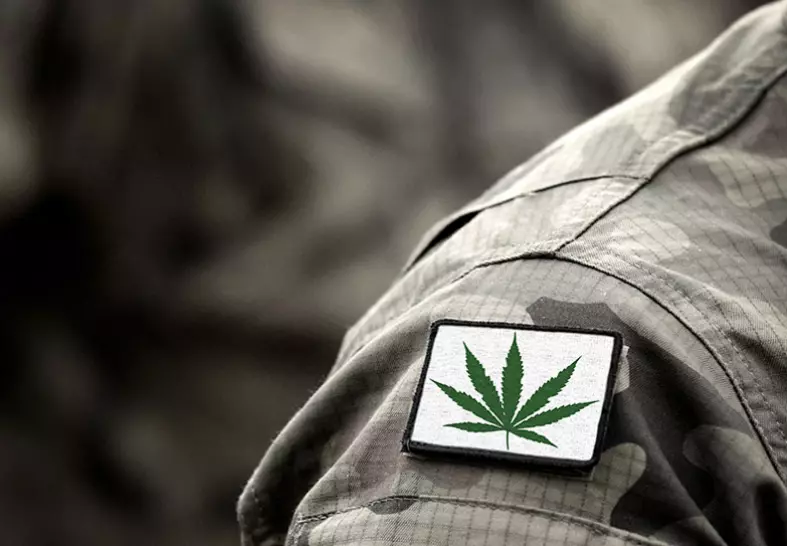Military deaths don’t just happen on the battlefield. They happen right here at home too, even after service. No one is more keenly aware of this than Janine Lutz, whose son Johnny killed himself after doctors gave him a prescription for Klonopin and 90 morphine pills. Is it possible that cannabis could have prevented this tragedy? Scientists believe so. Just ask Dr. Sue Sisley, chief investigator for the only FDA-approved study to look at marijuana for treating veterans with combat-related PTSD.
Both women sued the U.S. government in response to veteran suicide, and won. Dr. Sisley sued the DEA over moldy marijuana, and for stonewalling cannabis research. After filing a lawsuit against the DEA and Department of Justice, she won the right to grow her own for research purposes. Janine Lutz filed a wrongful death suit against the VA for prescribing her son with a drug known to cause suicidal thoughts — Klonopin — despite the fact that his records stated it would be detrimental to his health. Even though his previous doctor took him off it following an earlier suicide attempt.
Veterans Struggle with Usual Meds
An estimated 7,057 service members have died during military operations since 9/11, while suicides among active duty personnel and veterans of those conflicts have reached 30,177. That’s four times as many. Something needs to be done.

Lutz and Sisley are among veterans, health professionals, and advocates featured in the documentary Unprescribed, which makes a compelling argument for cannabis as a solution to the opioid epidemic and the poly-pharma problem.
Cannabis has been used as medicine for thousands of years. It was sold in pharmacies in the United States until it was outlawed in the 20th century. Today, cannabis is seeing a resurgence in the medical world. It’s used to treat glaucoma and seizures. Studies show that cannabis has analgesic and anti-inflammatory properties, meaning it can also help with pain, and potentially replace a number of dangerous, highly addictive drugs.
Cannabis may help regulate serotonin and dopamine, both of which play a key part in mood and behavior. It has also been shown to reduce anxiety and PTSD by working in concert with our body’s chemistry by way of the endocannabinoid system.
Sounds great, right? It can be, if you live in a state with legal cannabis. Then there’s also the issue of marijuana being illegal at the federal level, which means you’re out of luck as a medical marijuana patient if you’re a federal employee, or work for an organization that receives federal funding. A lot of vets work for the government.
Access for Veterans is Necessary
If you or someone you know is passionate about cannabis, veterans, and suicide awareness, then be sure to watch Unprescribed on Prime Video and visit theunprescribed.org to learn how you can make a difference.
The Unprescribed Inc. is a diverse group of veterans, advocates, and health professionals with a shared interest in saving lives through plant medicine. We are actively seeking volunteers to help in the community.
To apply as a volunteer, visit www.theunprescribed.org/volunteer.html.
